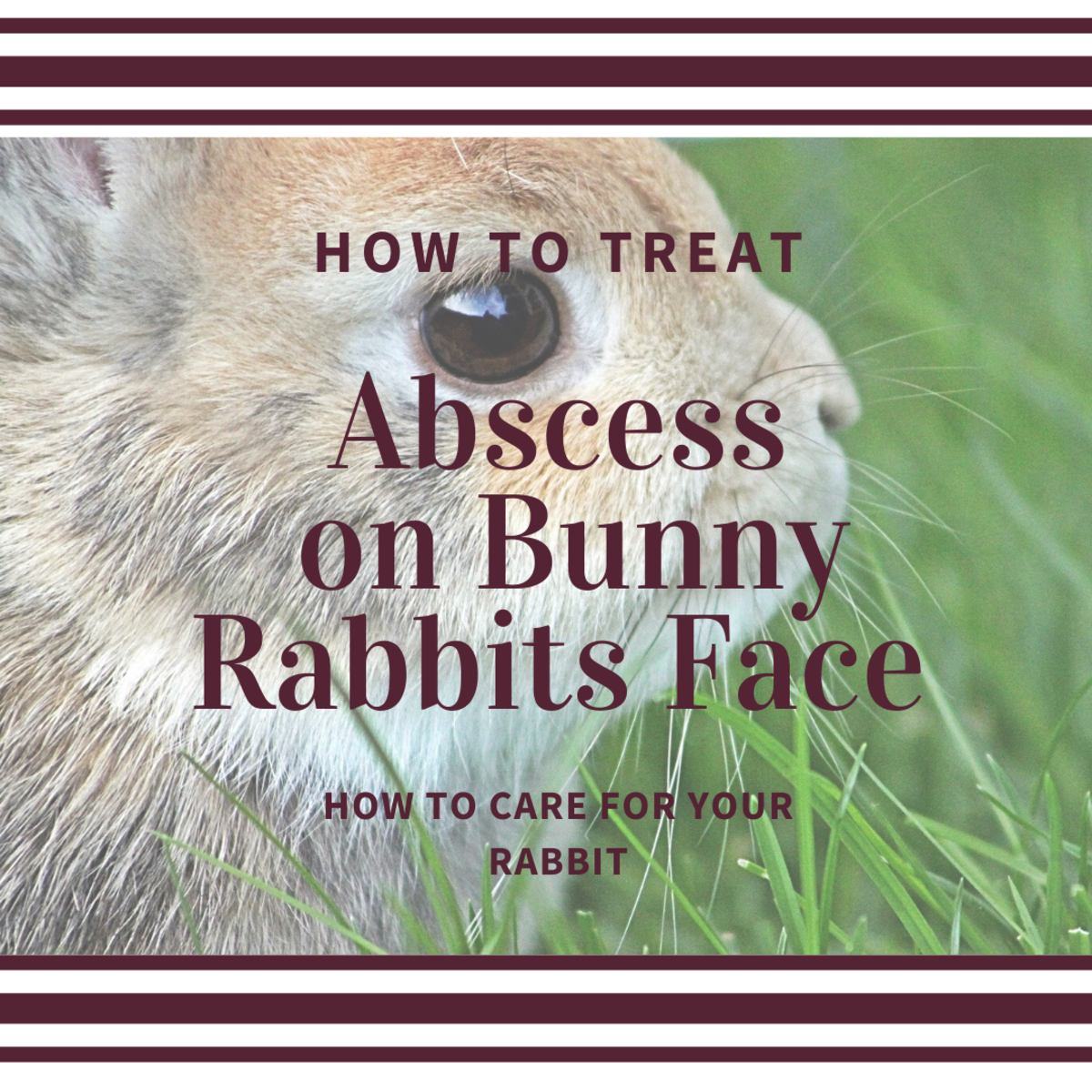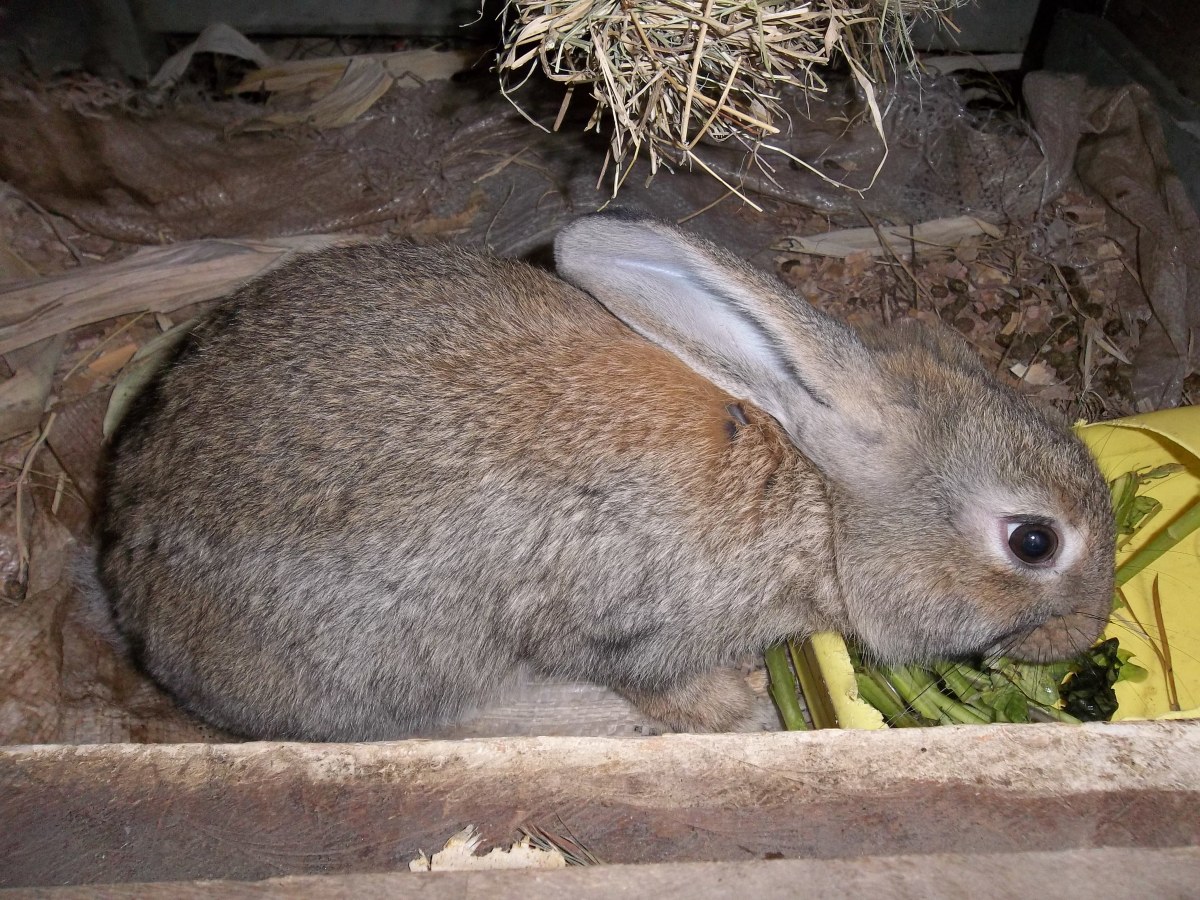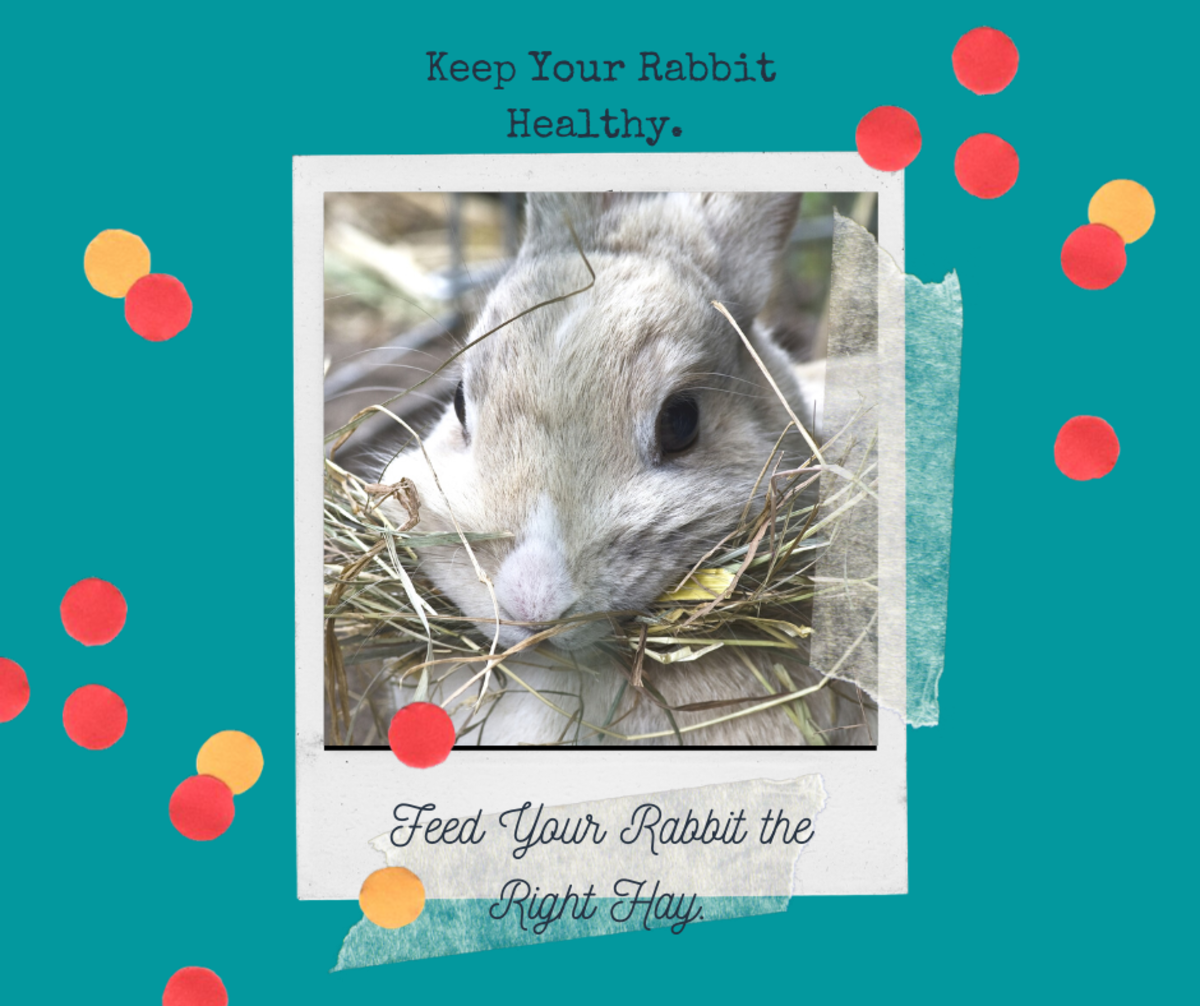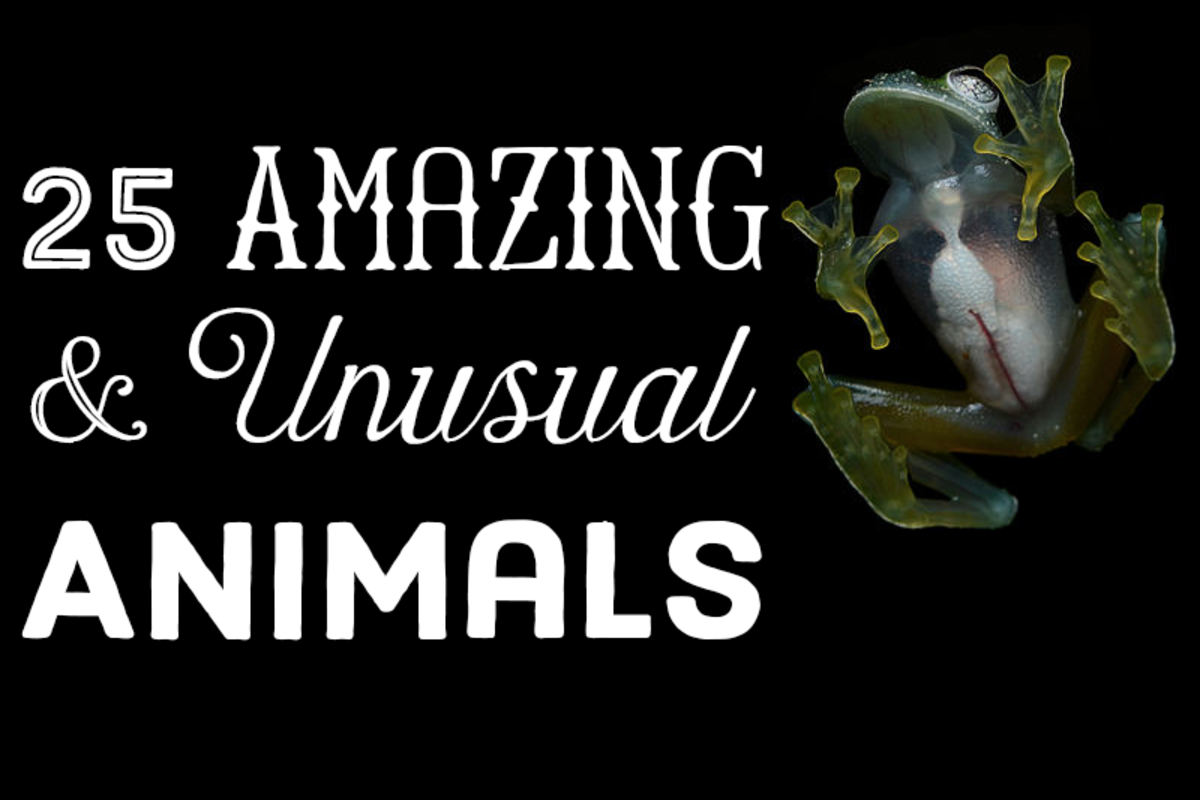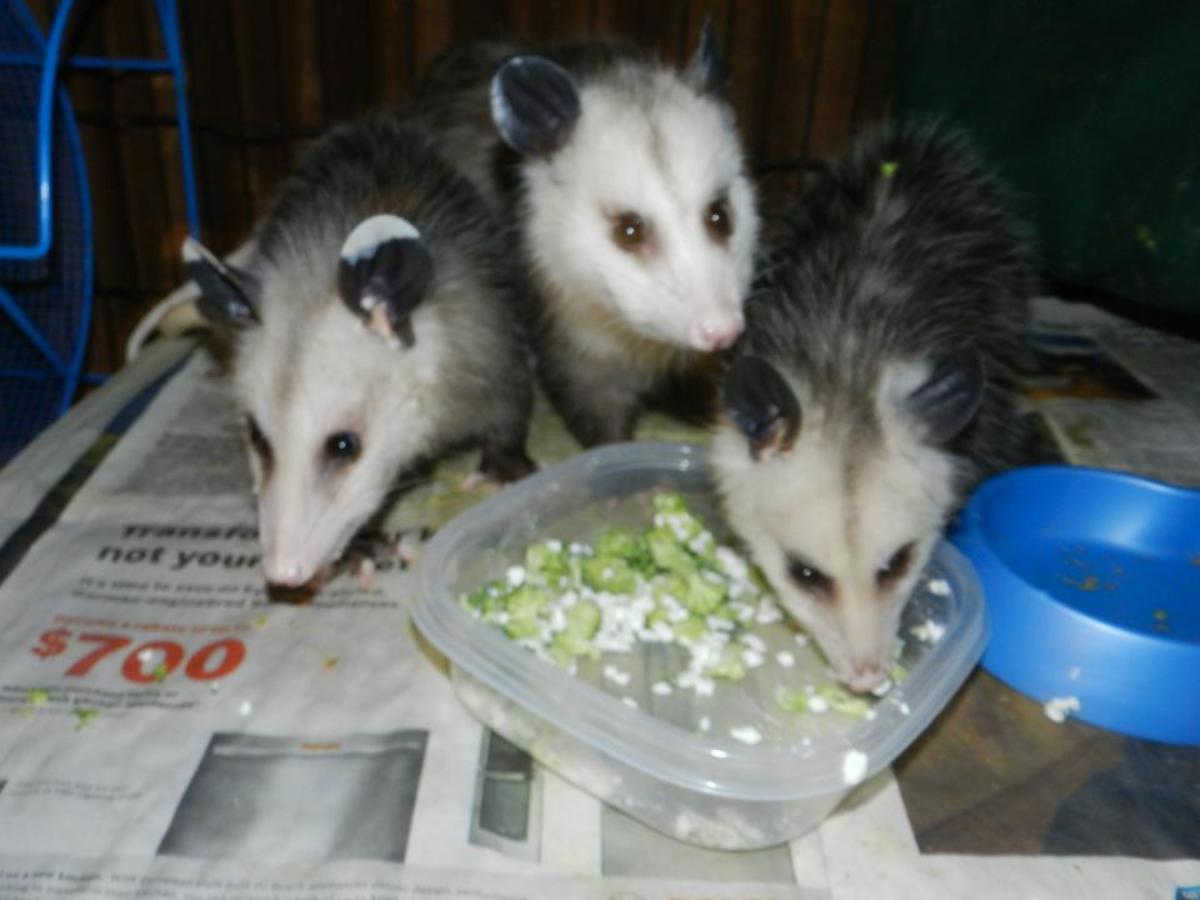The importance of hay in a rabbit's diet
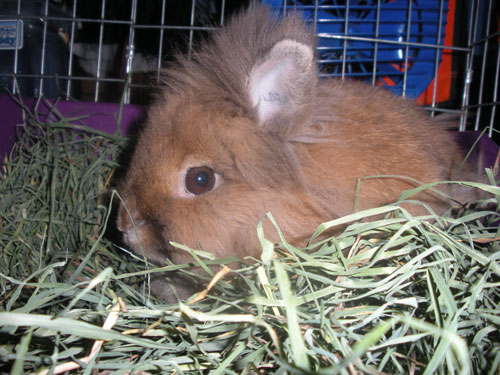
Hay is for horses, better for...rabbits!?
Well it may not rhyme very well, but hay is an essential part of a domestic rabbit's diet. Fresh grass hays should make up the majority of your rabbit's diet, and should be offered to bunnies in unlimited amounts. Never let your rabbit go without hay, even for a short amount of time.
Why is hay such an important part of a rabbit's diet? Rabbit's have complicated, and very sensitive, GI tracts. They are strict vegetarians, and are designed to be able to digest tough plant materials that many other animals would have a hard time gaining nutrients from. For a rabbit to remain healthy, their GI tract must be kept in constant motion. GI stasis, or when a rabbit's intestines slow down and eventually stop pushing food through the digestive tract, is a common and often times deadly ailment in rabbits. When a rabbit goes into stasis, the lack of movement in the digestive tract allows colonies of bad bacteria to flourish in the gut. These bacteria then cause gas, which is very painful to a rabbit. Rabbits often times do not handle pain well and so will stop eating and drinking and become depressed. As the rabbit becomes more dehydrated and nutrient deprived, the bad bacteria in their guts can start to release toxins that may eventually impact the animal's liver and kidneys. If not treated, GI stasis in rabbits can lead to bloat, organ damage, and often times a swift and painful death.
Making sure your rabbit has a constant supply of fresh hay is the first step towards preventing GI stasis. Hay, full of fiber, helps to maintain the constant movement of a rabbit's digestive system. It also helps to push other things your rabbit has eaten through the digestive tract, and can even help to prevent the build up of hairballs.
Another important reason why rabbits need lots of hay is dental health. Because of the type of diet they survive on, rabbits have evolved to have teeth that are constantly growing. Rabbit's teeth are constantly being worn down by the grinding motion needed to help the rabbits to chew and start to break down tough plant material. If rabbit's teeth stopped growing, their teeth would very quickly be worn down so much that the rabbit would no longer be able to chew it's food. However, rabbit's teeth that are not kept at the proper length and allowed to over grown can cause a verity of health issues including difficulty eating, painful mouth sores, and facial abscesses. The grinding motion needed to chew hay helps to keep a rabbit's teeth at the perfect length.
So now that you know why hay is so important, the next question is what type of hay is best for rabbits? For healthy adult rabbits, grass hays are the best to feed. There are two main types of hays commercially available; grass hays and legumes. The most common types of legume hays are alfalfa and clover hay. Legume hays are high in calcium content as well as calorie content. If fed in excess to an adult rabbit, they can cause health problems such as calcium stones and obesity. Legume hays are most commonly recommended for young and elderly, as well as sick, rabbits who can benefit from the extra calories, or used sparingly as a treat for healthy adults.
Grass hays, such as timothy, oat, barley, wheat, brome, and orchard, should make up the majority of an adult rabbit's diet. Timothy hay is probably the most commonly used hay and may be the easiest to find, but there is nothing wrong with using another type of grass hay or even a mixture of a few different types at once. Grass hays are high in fiber, but lower in calcium and calories, making them the healthiest type of hay to use in your healthy rabbit's diet.
To remain happy and healthy, domestic rabbits should be offered unlimited amounts of hay. It will help to keep your rabbits digestive tract and teeth healthy. Foraging through hay to find the perfect pieces that they want to eat can also help to provide mental stimulation for your rabbit. Hay can be messy and annoying to deal with for pet owners, but it is an essential part of a rabbit's diet and should never be left out. Luckily for rabbit owners, hay can often times be obtained cheaply and there are a numerous types to choose from. So be generous with the hay, and you're rabbit will thank you for it!


